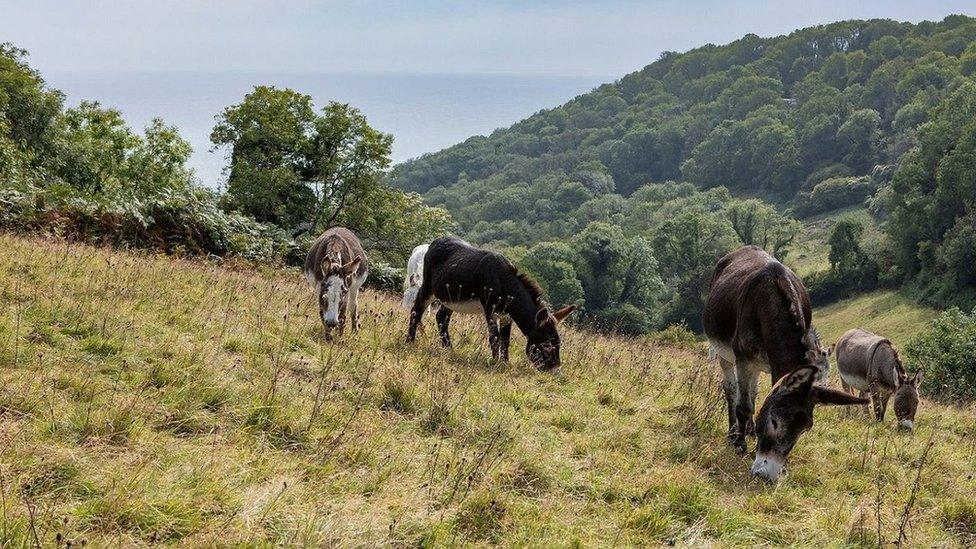Ten-year anniversary celebrates Coronation Meadow's expansion
- Published
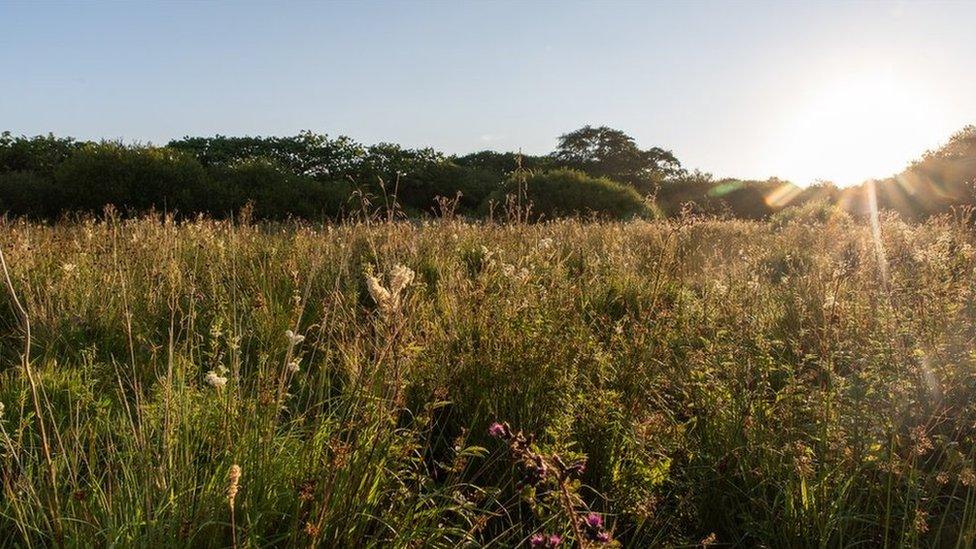
Dunsdon National Nature Reserve is home to a plethora of wildflower species
Devon's Coronation Meadow has become a "beacon of hope" for the revival of local wildflowers, a wildlife trust has said.
The then Prince of Wales, now King Charles III, launched the Coronation Meadows project in 2013.
The project was started to honour the 60th year of the late Queen's accession to the throne.
It aimed to create new meadows using seeds from ancient and traditional meadows, Devon Wildlife Trust said.
Dunsdon National Nature Reserve, near Holsworthy, was chosen as Devon's Coronation Meadow.
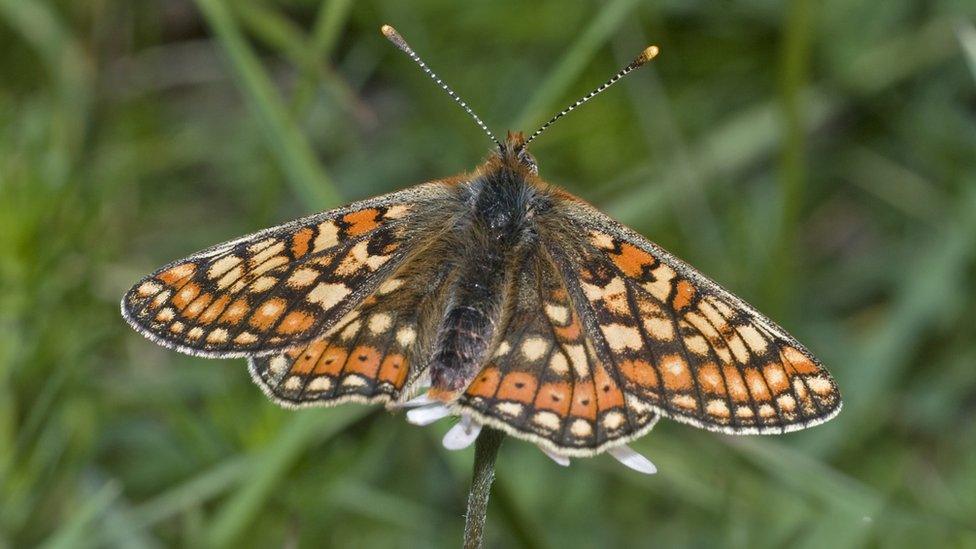
The nature reserve is home to the rare marsh fritillary butterfly
The Wildlife Trusts and Plantlife worked together on the project to identify 60 species-rich meadows which are known as Coronation Meadows, one for every year of the Queen's reign at that time.
These meadows then became donors to provide seed to increase the amount of valuable wildflower habitat elsewhere.
Dunsdon National Nature Reserve is owned and managed by Devon Wildlife Trust.
The trust said its network of Culm grassland fields support a rich mix of wildflowers including lesser butterfly orchids, ragged robin and bird's foot trefoil.
It said these in turn were home to a "huge range" of insects from bumblebees to the rare marsh fritillary butterfly.
On the 10-year anniversary of the project, the Wildlife Trusts and Plantlife charities have conducted a national audit of the success of the project which reveals 101 new wildflower meadows have been created or restored since the Coronation Meadows project began.
'Important boost'
Steve Hussey, of Devon Wildlife Trust, said: "We're very proud of Dunsdon National Nature Reserve's status as Devon's Coronation Meadow. It makes for a beautiful place to visit at this time of year.
"More than 90% of Devon's Culm grassland meadows have disappeared over the past 75 years, but at Dunsdon wildlife still flourishes in its full colourful range of wildflowers and butterflies.
"The award of Coronation Meadow status has helped us spread Dunsdon's good influence.
"Each year we've harvested some of the seeds from its meadows and spread them on other grassland sites nearby, enriching their plant diversity and giving local wildlife an important boost."

Follow BBC News South West on Twitter, external, Facebook, external and Instagram, external. Send your story ideas to spotlight@bbc.co.uk
Related topics
- Published3 November 2022
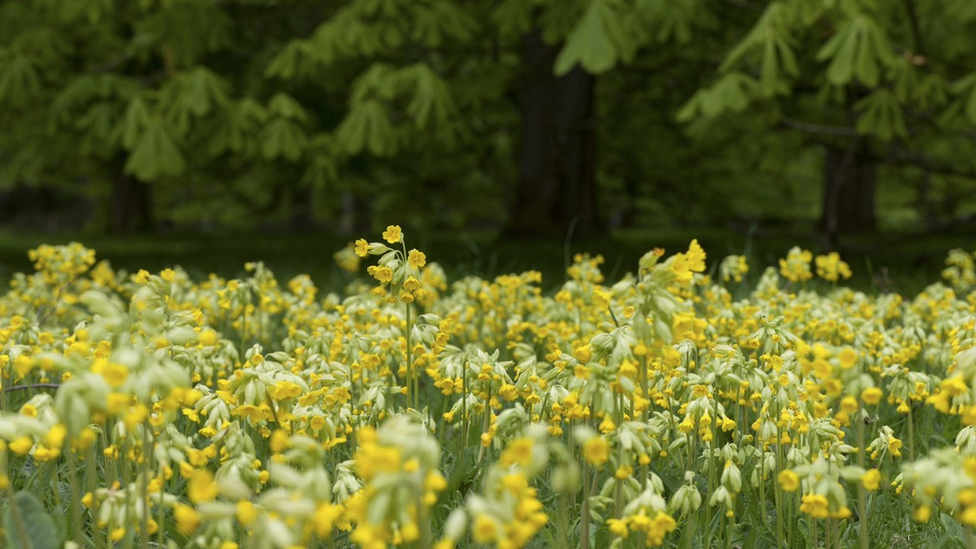
- Published18 August 2022
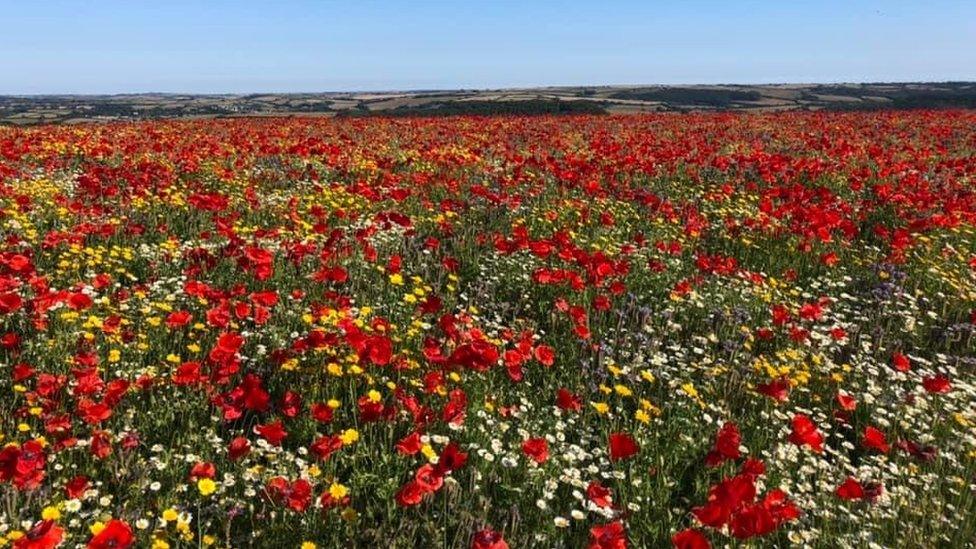
- Published31 May 2021
